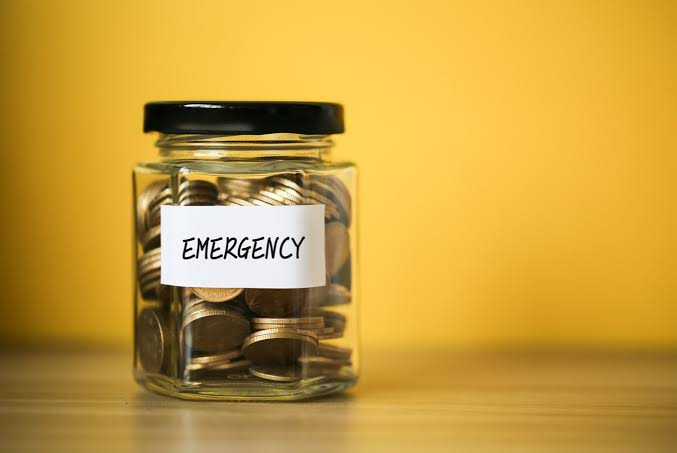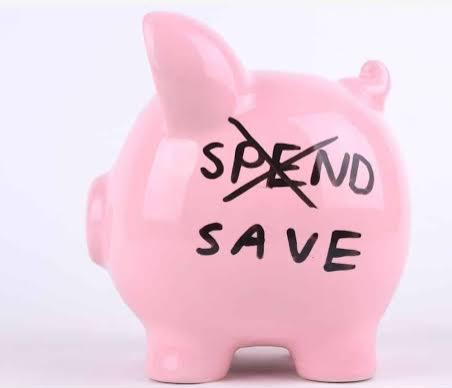Build An Emergency Fund
A crucial part of your general financial well-being is having extra funds for unforeseen circumstances such as emergencies. Having the means to cover all the expenses for this kind of thing will not only provide you with a sense of relief, but will also make you understand how to live within your means. However, why is building an emergency fund a must when you want to avoid facing a financial crisis even after you have boosted your income?
Try to picture the following possible emergencies that could happen at any moment. What could these be? Some emergencies include a lost cell phone, job loss, a fender bender, and bills for medical purposes. Whatever these things may be, one thing’s for sure: you want to avoid it from happening as much as possible. With the sudden occurrence of these types of emergencies, how will one be able to manage all the expenses?
Now, imagine you have the money set aside to cover those expenses. Imagine you were able to come up with smart ways to combat such a point in your life. How do you think this will affect you and your financial situation? Undoubtedly, you will feel much better knowing you can handle it and other expenses since you already have the money prepared beforehand. You will no longer be financially decimated because you have saved enough. This method is highly recommended to save money as a single mom and will guide her in parenting her child solo.
With these, one needs to build an emergency fund. It will act as a safety net, providing peace of mind and protection against debt or financial hardships. An emergency fund involves setting aside a designated amount of money to cover unexpected expenses or to go through financial setbacks. It is vital in one’s journey to a financially successful life. Further, to =keep your financial future in sight=, an emergency fund could be one of your stepping stones. Also, it is a wise step towards long-term financial stability and resilience.
If you have been thinking of building an emergency fund but need help figuring out where to start, here are a host of smart tips.
Build An Emergency Fund
In today’s unpredictable world, having an emergency fund is a must. It could be the difference between a small financial hiccup and a significant setback. Setting aside money for unexpected expenses will give you peace of mind and financial security. However, just like everything else, the emergency fund has pros and cons. Surprisingly, although it provides significant convenience when factoring in financial aspects, it also has its fair share of disadvantages. That is why you need to know beforehand what you’re getting into to make wise decisions.
The pros of building an emergency fund include having money on hand to handle emergencies. In times of unexpected circumstances like medical bills, job loss, or car repairs, you can cover all the expenses instantly. And the best thing here is that you will no longer have to rely on or run up your credit cards and take out loans! Likewise, with emergency funds, you won’t need to raid short or long-term goals of your money because you already have the “money.”
On the other hand, the cons of emergency funds are: foremost, you need to budget your money to build it; you will also have less money for retirement, and you can only save for other expenses. Creating an emergency fund also means you have less to invest and less discretionary money. Yes, emergency funds may have some disadvantages. Nonetheless, their impact on one’s financial freedom could never be denied.
Why Do We Need to Build an Emergency Fund?
Emergency funds are such a life-saver, no doubt about that. Is it necessary? Yes. Does it change someone’s life? Also, a yes. But the real deal is asking ourselves why we need to build one. Unexpected expenses can arrive anytime—such as medical emergencies, job loss, and major home repairs. A dedicated fund for emergencies ensures you are prepared and prepared for these unwanted situations. Above all, emergency funds will provide you with financial security and peace of mind.
Benefits Of Building An Emergency Fund
At a time when everything is fast-paced and full of uncertainties, building an emergency fund should be on your list of priorities. Only then will you be able to have a financial safety net during unexpected events? Emergency funds reduce reliance on credit cards or loans and prevent you from accumulating debts. It must also be one of the things to consider if you seek protection against a financial crisis. Not only that, but these funds will allow you to sleep better at night, knowing you are free from any form of financial dilemma. Additionally, it reduces stress and anxiety, therefore promoting overall financial stability.
Set Smaller Saving Goals: Not One Big Goal
Although reaching larger saving goals can be a little tempting, the smaller ones can be more achievable and motivating. These goals, albeit small, allow incremental progress, boost your confidence, and provide a sense of accomplishment along the way. Something that larger saving goals could not give in a short period as it requires so much effort. Smaller goals also help maintain momentum, making it easier to stay committed to your saving plans and achieve financial success.
Start With Small, Regular Contributions
The experts say you should have between three to six months of living expenses saved in your emergency fund. But you can only save that kind of money after some time. Remember, the Eiffel Tower was built a day ago, and neither will your emergency fund. Start small so you don’t overwhelm or miss large chunks of your paycheck. This is a smart approach to saving as it will not put your money at risk. In addition, starting small can make saving more manageable and less overwhelming, especially if you are on a tight budget. Also, always bear in mind that small contributions add up over time. It will create saving habits and help build momentum along the way. You have to keep reminding yourself that starting at a smaller amount is the most practical way to begin your journey toward achieving your financial goals.
Live On Your Budget
Living on your budget means keeping your monthly spending and opening a new credit card the same. To build an emergency fund successfully, one must maintain consistent spending habits to manage their budget. An individual must also maintain financial stability by avoiding necessary debt, which will only cost him more money. By avoiding debts, one can reduce the risk of overspending and help maintain control of one’s financial situation masterfully.
Don’t Over Save
While it is true that saving is important, it’s equally crucial not to over-save. If one does so, it can lead to missed opportunities for enjoyment and experiences in the present. Learn the art of balancing. You must balance saving for the future and enjoying the present, ensuring financial security. Do not pressure yourself too much; it will only be to your disadvantage. Only put a portion of your income into your emergency fund and save the rest for your other expenses.
Conclusion
Life is something you cannot predict, even the experts. You will never know what will happen three days from now. You will need help figuring out what situation you will be in tomorrow. That is why someone must build an emergency fund to handle unexpected bumps smoothly. This is the most brilliant financial move you can make in preparing yourself for the worst. Though it cannot be denied that putting money aside can be difficult when there’s plenty you could use for now, having funds for emergencies gives you options you might not have otherwise. It significantly reduces your money worries and provides you with the means to have money when you most need it. Emergency funds are indeed a life-saver.


